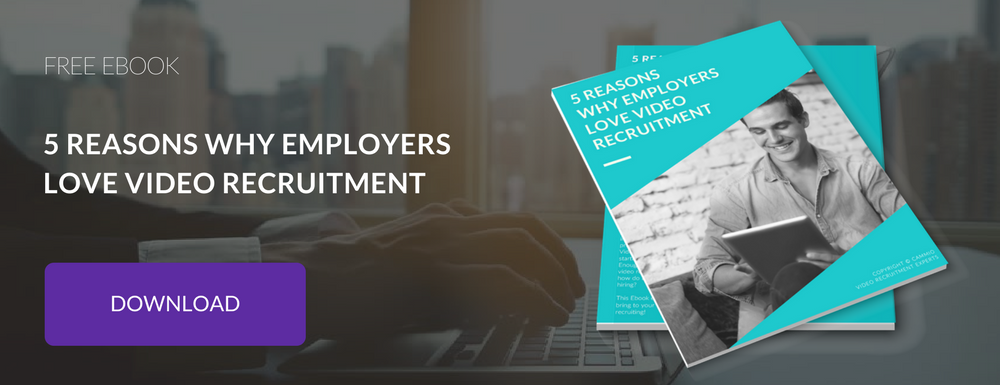Why a video recruitment solution should not be powered by duct tape
I truly like blogging. It allows me to assess the world around me with clear vision, have an opinion on things that matter and be astonished by the situations I encounter in my professional life. My blogs usually are solution-oriented, they are not pessimistic, nor are they negative. As I start writing this blog, I am not sure yet if this will also hold true this time around since I am honestly upset that I recently encountered a blatant disrespect for candidate privacy and data privacy regulation. To make things worse, the culprits are government bodies.
Data privacy gone wrong
It was about two weeks ago that I had a conversation with my daughter’s former babysitter, who had just finished her second master’s degree and was seeking some career advice. We talked about her professional ambitions, ideal career path and her experience with job applications. She mentioned that out of the 4 applications that she had done to date, 2 applications required her to upload a video as part of her application. In both instances, this was an application at a government body. Being professionally obsessed with video recruitment, I asked her how it worked and what kind of jobs they were. It turned out that in both occasions it was a traineeship and that she had to send in a video pitch recording via email (or otherwise).
I was stunned…
You may wonder why the CEO of a video recruitment platform provider is upset by an employer asking for a video pitch recording as part of the application. I should be happy, right? Am I upset about competition or the fact that the employer did not select Cammio? Not at all. I am upset that a government body deliberately chooses to disrespect candidate privacy in a traineeship recruitment project.
Here’s what’s wrong:
#1: You are not allowed to require sensitive personal data as part of the initial job application. A video, similar to a photo, contains sensitive personal data such as ethnicity, and gender. Obviously, in a video the sensitive personal data is a by-product, but it is collected nonetheless. A video can only be offered as an option in the initial application and cannot be a requirement. Video interviews can only be a requirement after the initial application phase as a following selection step just as the on-site interview or an online assessment.
#2: If you record a video and have to submit it as a file, protecting candidate privacy is going to be really hard, if not sheer impossible. Imagine a scenario where a candidate records a video on his or her smartphone, emails it, and the recruiter downloads the file. The moment the file materialises at the employer and is saved, watched and shared, the file starts multiplying. Now what if the candidate asks you to have the file removed (right to be forgotten)? You will have no digital track of where all the files have ended up. You have a big, big issue!

This is what happens when a recruiter has heard about a video pitch and starts experimenting with duct tape. The Cammio platform, and any professional video recruitment solution, will store, encrypt and protect the data for you. Access is only given by links that have associated access logging. Data retention is set and consequently data automatically deleted. Candidates can request access to their data, demand ceased processing and have the right for portability of their data. These are all key principles of EU-GDPR, designed to harmonise data privacy legislation across Europe by applying a single data protection law that is binding throughout each member state.
To see government entities disrespect the ‘Privacy by Design’ principle of EU-GDPR less than 2 months away from the enforcement date of this legislation is just shocking. I do hope that candidates are not afraid to make themselves heard when their privacy is disrespected by recruiters building a video recruitment option with duct tape. And if you ask me to name and shame, I will not do it. That is not the point. I am sure there are more culprits out there and singling out only the ones that I have encountered by chance, does not seem fair. This is an issue between candidate and recruiter, which is now hopefully clearer through this blog post.

Video recruitment has been around for a few years now. Many government bodies around the EU, including our clients European Personnel Selection Office (European Commission), the European Stability Mechanism (ESM) and The Council of Europe Development Bank (CEB), take good care of their candidates by using a professional provider. They know that candidate privacy should be at the heart of any recruitment solution and have selected a provider (yes, I am proud) that delivers both a great candidate experience and the best possible protection.
So, I guess I am still a nice guy that is not being too negative or pessimistic. And I do hope that I have been able to provide some guidance with this post.
Happy (and safe) hiring!

